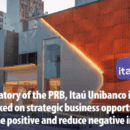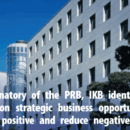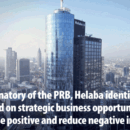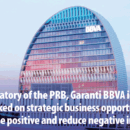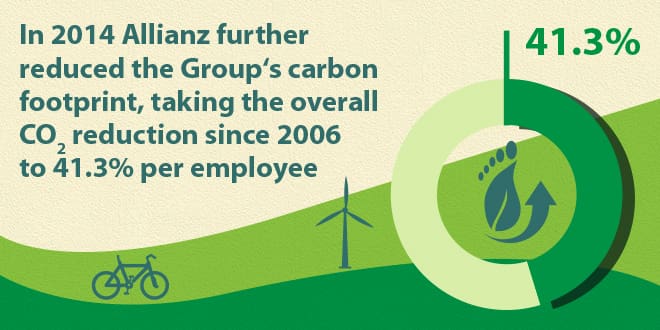Case study: How Getac promotes sustainability across its supply chain

Since 1989, Getac has been providing rugged computing solutions for demanding professionals in extreme environments. Getac’s products are sold in 80 countries worldwide, with major clients located in the United States, the United Kingdom, Germany, France, Italy, Russia, China and India. In addition to implementing the Responsible Business Alliance (RBA) on sustainability issues, Getac also exerts its influence to require its supply chain to follow and work together to fulfill corporate social responsibility.
This case study is based on the 2020 Sustainability Report by Getac, prepared in accordance with the GRI Standards, that can be found at this link. Through all case studies we aim to demonstrate what CSR/ ESG/ sustainability reporting done responsibly means. Essentially, it means: a) identifying a company’s most important impacts on the environment, economy and society, and b) measuring, managing and changing.
Abstract
While pursuing growth, Getac also actively promotes sustainability among its suppliers Tweet This!, so as to meet the expectations of its stakeholders. In order to promote sustainability across its supply chain Getac took action to:
- implement a contract management mechanism
- conduct a global suppliers sustainability survey
- invite suppliers to sign a CSR agreement
Subscribe for free and read the rest of this case study
Please subscribe to the SustainCase Newsletter to keep up to date with the latest sustainability news and gain access to over 2000 case studies. These case studies demonstrate how companies are dealing responsibly with their most important impacts, building trust with their stakeholders (Identify > Measure > Manage > Change).
With this case study you will see:
- Which are the most important impacts (material issues) Getac has identified;
- How Getac proceeded with stakeholder engagement, and
- What actions were taken by Getac to promote sustainability across its supply chain
Already Subscribed? Type your email below and click submit
What are the material issues the company has identified?
In its 2020 Sustainability Report Getac identified a range of material issues, such as child labour, corporate governance and transparency of information, economic performance, operational risk management, environmental/social/economic compliance, information security and customer privacy. Among these, promoting sustainability across its supply chain stands out as a key material issue for Getac.
Stakeholder engagement in accordance with the GRI Standards
The Global Reporting Initiative (GRI) defines the Principle of Stakeholder Inclusiveness when identifying material issues (or a company’s most important impacts) as follows:
Stakeholders must be consulted in the process of identifying a company’s most important impacts and their reasonable expectations and interests must be taken into account. This is an important cornerstone for CSR / sustainability reporting done responsibly.
Key stakeholder groups Getac engages with:
| Stakeholder Group | Method of engagement |
| Employees
|
· Performance appraisal
· Internal announcement · Employee meeting · Labour management meeting/supervisor meeting/training · Employee consultation hotline · Education & Training |
| Customers/distributors | · Customer service section on corporate website
· Sales contract and Non-disclosure agreement · Telephone customer service hotline · Channel partner conference · Consumer service mailbox · ESG audit by third party |
| Suppliers | · Supplier visit
· Supplier procurement contract · Supplier audit · Supplier query mailbox · Supplier Conference |
| Shareholders | · Shareholders’ meeting/ investor conference
· Corporate website · Market observation post system · Investor query mailbox/ hotline |
| Government agencies | · Official documents
· Regulatory meetings and training · Seminars |
| Media | · News releases
· Press conferences · Spokesperson interviews · Posting of information on the corporate website |
How stakeholder engagement was made to identify material issues
To identify and prioritise material topics Getac engaged with its stakeholders through a questionnaire survey.
What actions were taken by Getac to promote sustainability across its supply chain?
In its 2020 Sustainability Report Getac reports that it took the following actions for promoting sustainability across its supply chain:
- Implementing a contract management mechanism
- In addition to the traditional TQRDC (Technology, Quality, Responsiveness, Delivery, Cost) standards, Getac follows the RBA regulations on sustainability issues. Through its contract management mechanism, Getac includes sustainability-related issues, such as environmental protection, customer health and safety, anti-corruption, and intellectual property rights, in its standard purchase order (PO) and in its Master Purchase Agreement. Getac’s raw material suppliers must sign a statement stating their understanding of the terms and conditions of its standard PO, which states that the supplier must agree to statements and guarantees related to sustainability issues. Getac also asks suppliers to sign the Master Purchase Agreement, which requires suppliers and upstream suppliers to fulfill environmental responsibilities, respect labour rights, avoid the use of conflict minerals, engage in ethical management, and adopt sustainability practices. If suppliers violate any of the requirements, Getac reserves the right to terminate the contract and request for a penalty fine 10 times the amount of the damage and product orders.
- Conducting a global suppliers sustainability survey
- Getac adopts the Code of Conduct of the Responsible Business Alliance as the value base of supply chain management and provides further assistance in understanding the implementation status of supply chain partners. In 2020, Getac established the “Sustainability Zone” in Getac global Supplier Portal, and invited all Getac supplier partners to log in to reveal sustainable performance. A questionnaire survey was conducted based on the 603 raw material suppliers that had transactions in the previous year, and a total of 512 valid questionnaires were collected, a total of 85%. The survey results found that more than 40% of suppliers were verified by third-party organisations on CSR-related issues and passed the qualifications. More than 80% of suppliers provide more than one kind of internal employee education and training courses, including occupational safety, environmental protection and labour regulations, and more than 90% of suppliers use different methods such as internal or on-site audits to ensure that their supply chains jointly comply with corporate social responsibility.
- Inviting suppliers to sign a CSR agreement
- Getac hopes to work with suppliers to fulfill corporate social responsibility and implement the concept of “responsible consumption and production” in the United Nations sustainability goals, and invites suppliers to sign a CSR agreement, promising to fulfill corporate social responsibility, safeguard basic human rights, and promote environmental sustainability development. In 2020, 603 raw material suppliers that had transactions in the previous year were invited to sign and a total of 513 copies were received, which is about 85.07%.
Which GRI Standards and corresponding Sustainable Development Goals (SDGs) have been addressed?
The GRI Standards addressed in this case are:
1) Disclosure 308-1 New suppliers that were screened using environmental criteria
2) Disclosure 308-2 Negative environmental impacts in the supply chain and actions taken
3) Disclosure 414-1 New suppliers that were screened using social criteria
4) Disclosure 414-2 Negative social impacts in the supply chain and actions taken
Disclosure 308-1 New suppliers that were screened using environmental criteria does not correspond to any SDG.
Disclosure 308-2 Negative environmental impacts in the supply chain and actions taken does not correspond to any SDG.
Disclosure 414-1 New suppliers that were screened using social criteria corresponds to:
- Sustainable Development Goal (SDG) 5: Gender Equality
- Targets: 5.2
- Sustainable Development Goal (SDG) 8: Decent Work and Economic Growth
- Targets: 8.8
- Sustainable Development Goal (SDG) 16: Peace, Justice and Strong Institutions
- Targets: 16.1
Disclosure 414-2 Negative social impacts in the supply chain and actions taken corresponds to:
- Sustainable Development Goal (SDG) 5: Gender Equality
- Targets: 5.2
- Sustainable Development Goal (SDG) 8: Decent Work and Economic Growth
- Targets: 8.8
- Sustainable Development Goal (SDG) 16: Peace, Justice and Strong Institutions
- Targets: 16.1
78% of the world’s 250 largest companies report in accordance with the GRI Standards
SustainCase was primarily created to demonstrate, through case studies, the importance of dealing with a company’s most important impacts in a structured way, with use of the GRI Standards. To show how today’s best-run companies are achieving economic, social and environmental success – and how you can too.
Research by well-recognised institutions is clearly proving that responsible companies can look to the future with optimism.
7 GRI sustainability disclosures get you started
Any size business can start taking sustainability action
GRI, ISEP, CPD Certified Sustainability courses (2-5 days): Live Online or Classroom (venue: London School of Economics)
- Exclusive FBRH template to begin reporting from day one
- Identify your most important impacts on the Environment, Economy and People
- Formulate in group exercises your plan for action. Begin taking solid, focused, all-round sustainability action ASAP.
- Benchmarking methodology to set you on a path of continuous improvement
See upcoming training dates.
References:
This case study is based on published information by Getac, located at the link below. For the sake of readability, we did not use brackets or ellipses. However, we made sure that the extra or missing words did not change the report’s meaning. If you would like to quote these written sources from the original please revert to the following link:
https://www.getac.com/uploads/2022/02/2020-GetacCSR_Full-Report.pdf
Note to Getac: With each case study we send out an email requesting a comment on this case study. If you have not received such an email please contact us.


